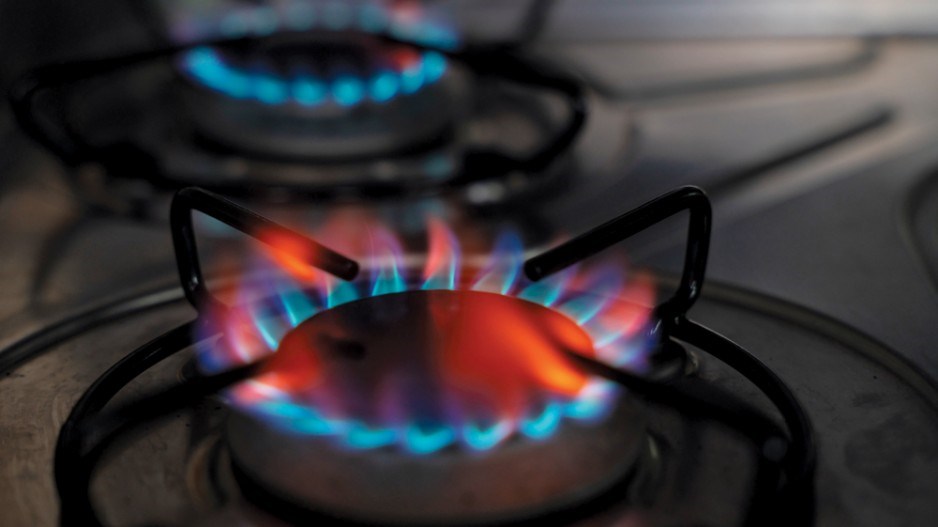A particularly cold start of the winter, coupled with growing worries about inflation and a drop in economic confidence at the national level, made British Columbians more aware of their energy use.
When Research Co. and Glacier Media asked the province’s residents about their level of apprehension on five specific issues, more than four in five British Columbians (84 per cent) said they are “very concerned” or “moderately concerned” about energy costs for households becoming too expensive.
Concerns were lower for all other matters, including the effects of climate change in the world (79 per cent) and in sa国际传媒 (75 per cent), energy shortages leading to measures such as rationing and rolling blackouts (70 per cent) and energy costs for businesses becoming too expensive (66 per cent).
Energy policy can be cumbersome for governments. Measures aimed at conservation usually do not go far enough for voters preoccupied with the environment, and discussions about modifications to existing industries can be interpreted as “job killers.” Finding a middle ground is tricky, especially at a time when British Columbians are clearly in cost-saving mode.
One of the major issues that the provincial government will need to address is liquefied natural gas (LNG). In our survey, more than half of British Columbians (55 per cent) want to allow for further development of the LNG industry, while 29 per cent are opposed and 17 per cent are undecided.
Support for an expansion of LNG activity is highest among those who voted for the BC Liberals in the 2020 provincial election (71 per cent), and drops to 52 per cent among those who cast ballots for the governing BC New Democratic Party (NDP) and to 48 per cent among those who supported the BC Green Party. These results are completely understandable, as previous BC Liberal governments led the original push for LNG development.
Another challenge has been launched by municipal governments that have become more active. In the City of Victoria, for instance, all new buildings will be “zero carbon” by July 2025. This decree effectively bans the use of natural gas (on stoves and-or heaters) in these dwellings.
At this point, just under two in five British Columbians (39 per cent) would support the provincial government implementing a sa国际传媒-wide natural gas ban in new buildings, while 45 per cent are opposed. Negative views on a potential prohibition rise with age, from 38 per cent among those aged 18 to 34, to 48 per cent among those aged 35 to 54, and to 51 per cent among those aged 55 and over.
The public is deeply divided on whether the provincial government should allow nuclear power – in the form of small modular reactors – for electricity generation. While 43 per cent of British Columbians would welcome this idea, 40 per cent are against it.
On nuclear power, there is a sizable gender gap. While 55 per cent of male British Columbians would be happy to rely on small modular reactors for electricity generation, only 31 per cent of female residents concur.
Another widely discussed item in the energy sector is the impending move to electric vehicles. The provincial government will require all car and passenger truck sales to be zero-emission by 2035. We that British Columbians are slowly getting used to this idea, even if fears about being stranded and away from a charging station persist.
In our latest survey, seven in 10 British Columbians (70 per cent) support the goal established by the provincial government on zero-emission vehicles. However, only 32 per cent of them think it will be achievable. This leaves close to two in five residents of the province (38 per cent) who question whether this wish will actually come true – a proportion that rises to 41 per cent among those aged 55 and over.
The pace of the move to electric vehicles is also contentious. For about one in four British Columbians (23 per cent), the change is happening too slowly. And while 38 per cent endorse the current state of affairs, 27 per cent believe it is happening too quickly.
As is often the case, the energy file leaves the provincial government with more questions than answers. There is majority support for LNG development, but not everyone is ready to welcome nuclear power or a provincewide prohibition on natural gas in new construction projects. Any major policy changes will need to be cautiously discussed with a public that is, justifiably, worried about household expenses.
Mario Canseco is president of Research Co.
Results are based on an online study conducted on Jan. 9 to 11, 2023, among 800 adults in British Columbia. The data has been statistically weighted according to Canadian census figures for age, gender and region in British Columbia. The margin of error – which measures sample variability – is plus or minus 3.5 percentage points, 19 times out of 20.



